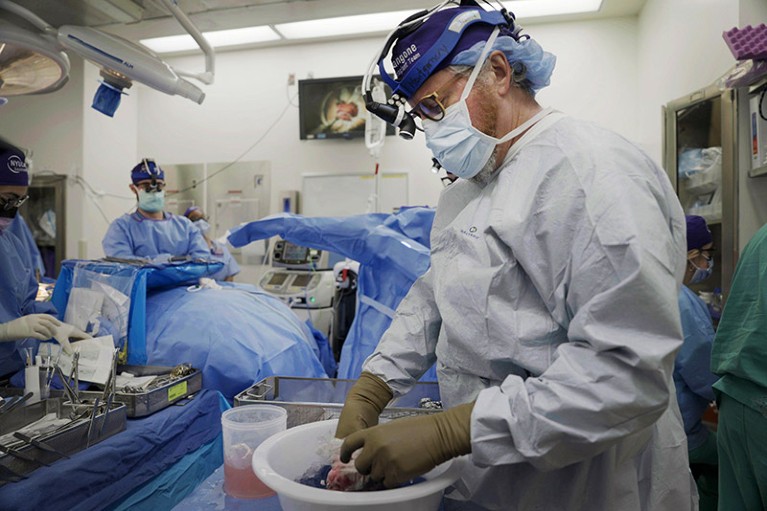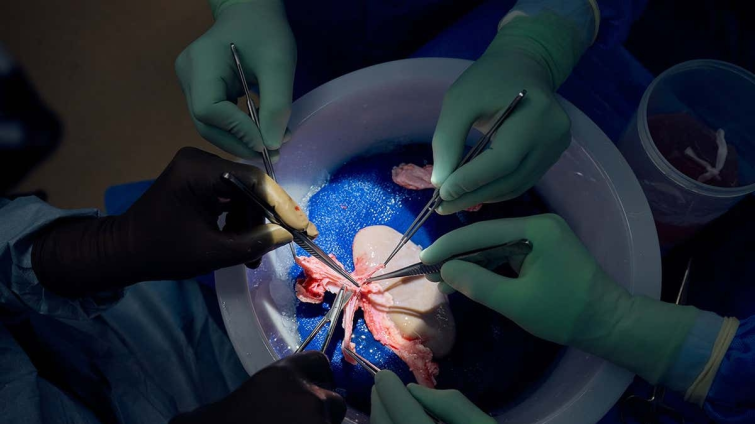A Leap Forward in Xenotransplantation
A monkey’s remarkable two-year survival following a kidney transplant from a pig is being hailed as a “significant step forward” by scientists. This discovery, they assert, offers hope for the extended utilization of porcine organs in human transplants.
Pioneering Collaboration for Human-Compatible Organs
A pioneering collaboration between Harvard Medical School and the biotechnology company eGenesis led to the transplantation of kidneys from genetically modified Yucatan miniature pigs into macaque primates. These modifications, including the introduction of human DNA and the elimination of pig viruses, were strategically planned to prevent organ rejection.

In total, twenty-one primates received pig kidneys with varying degrees of modification. Survival rates for those that received kidneys engineered to transport human genes and eliminate antigens increased sevenfold, with an average survival period of 176 days. Remarkably, one primate lived for a remarkable 758 days, as disclosed in a recent study published in the journal Nature.
Closer to Clinical Testing
The researchers say genetically engineered swine kidneys for human transplantation are closer to clinical testing. Dr. Michael Curtis, eGenesis CEO, calls the study a “significant step forward in transplantation and medicine more broadly.” He adds, “Our latest publication documents the accomplishment of an unprecedented milestone, offering optimism and paving the way for improved outcomes for countless individuals in need of life-saving organ transplants. Cross-species transplantation is the most sustainable and scalable approach to provide new organ sources for patients.”
The largest preclinical proof-of-concept study reveals that non-human primates can maintain kidney function for two years. These groundbreaking results signify a substantial leap towards human compatibility.

NHS Blood and Transplant reports 5,562 kidney transplant waiting lists in the UK. This underscores the urgency and significance of xenotransplantation as a solution.
“Xenotransplantation” denotes the process of donating organs, tissues, or cells from animals to humans. Due to their size, organ resemblance to humans, and advanced gene-editing techniques, pigs are the most prospective donor animals.





